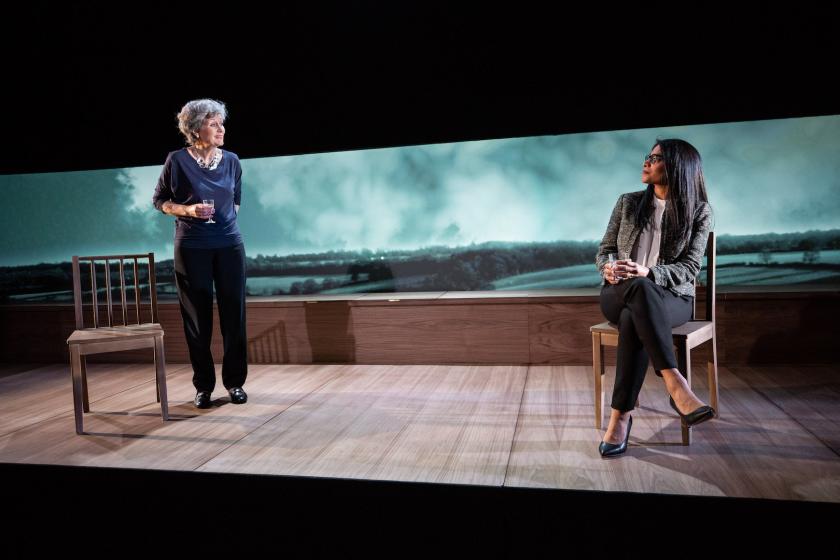Few critics become playwrights, but Tim Walker has done just that with Bloody Difficult Women, his debut. It's taking a risk; should any of his less generous critical colleagues wish to take a shot at the poacher turned gamekeeper, it's open season. On the other hand, it could place a friendly critic in an uncomfortable position; what if it's awful? Full disclosure: I used to deputise for Tim Walker at The Sunday Telegraph (he now writes for The New European) but before this press night we had met only once, so I think it's safe to proceed.
The play follows the clash between anti-Brexit campaigner Gina Miller (Amara Karan) and Theresa May (Jessica Turner), then prime minister, when Miller took the government to court in 2016 over May's decision to invoke Article 50, the UK’s EU exit clause, without a vote in parliament.
Walker, like Miller, is a keen Remainer and they have become friends; I think it's fair to say she gets more favourable treatment politically here, but May's vulnerabilities as a non-clubby, socially awkward woman in a man's world are essayed sympathetically. May was herself a Remainer who, we learn, cried when the result of the 2016 EU referendum was declared.
In presenting their parallel stories Walker neatly suggests the two women have more in common one might have thought, including a marked work ethic, a strong attachment to their fathers (Miller's an attorney-general of Guyana, May's a vicar) and a well defined sense of personal morality. When May refers to our present prime minister (never named in the play) she describes him as “an utter charlatan”. Miller meanwhile is shown to be equally a woman of principle. Asked why she brought the legal action she says: “If those who govern us don’t stick to the rules, no one will.”
The other characters are two real-life ones – Miller's husband, Alan (Edmund Kingsley, given little to do) and Daily Mail editor Paul Dacre (Andrew Woodall, given a lot to do in the swearing department as he seeks to destroy Miller's reputation after her successful legal action) – and three composites.
Calum Finlay plays Minion, one of Dacre's reporters, and Max Guilden, a bright young thing working as an aide to May's senior Brexit adviser, Sir Hugh Rosen (Graham Seed).
The relationship between Hugh and Max – the ageing homosexual making pointless passes at the resolutely straight younger man – feels like a device to churn out exposition and create some tension in a story noticeably lacking any, as we know what happened next.
And Minion, strangely for a journalist character written by a journalist, also doesn't ring true – although the scenes between Minion, who speaks mostly in impenetrable rhyming slang and Dacre, who speaks mostly in “fucks” and “cunts”, contain most of the evening's comedy.
In multiple scenes there is lots of talking as events are described but little actually happens, and Stephen Unwin's direction could helpfully inject more zip. But we do learn more about two women involved in one of the most momentous periods of UK history – and the disturbingly close relationship between some sections of the media and those at the heart of government.















Add comment